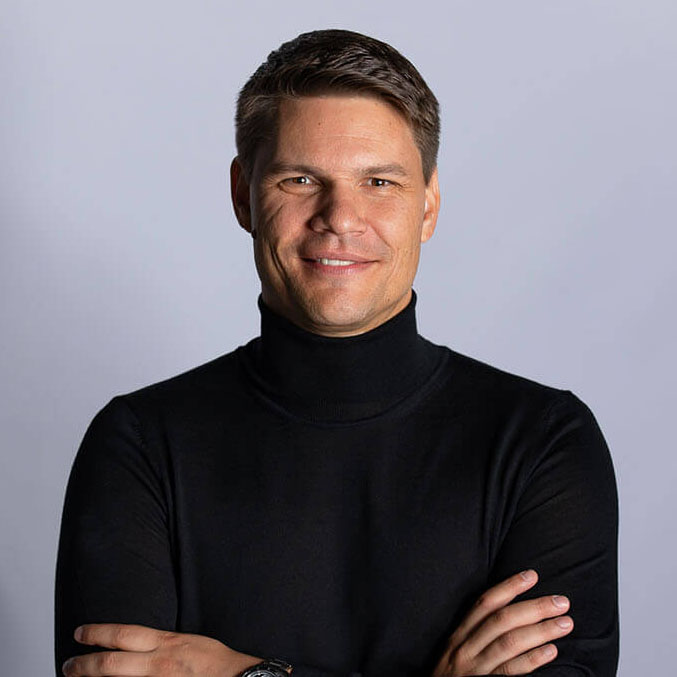Dr. Henry Widera (he/him)
No digitization without digital IT and diversity!

I am a native Berliner, married and father of a wonderful daughter. Professionally, I see myself as a change agent who is shaping the digital transformation of Berliner Verkehrsbetriebe (BVG). Starting as Head of Digitalization, I am now CIO and a member of the operational management board.
Editor’s note 2023: Dr. Henry Widera was CIO of BVG at the time of the interview and is now employed in another role.
I would like Germany to be a place where change is natural, where we see more opportunities than risks. Then I wouldn’t worry about the issue of diversity in companies.
As CIO, I am responsible for the areas of information and sales technology with around 430 colleagues. My focus is on the digital transformation of BVG by proactively adapting the business model and strengthening and expanding the role of technology, data and new forms of work. Here, I am guided by my mantra: “No digitalization without digital IT and diversity!”
For me, diversity is a prerequisite for success as a company. If we’re not just as diverse as our customers, we can’t deliver tailored offerings. And we’re not just talking about mixed teams of men and women.
The teams should also be diverse in terms of age structure, social background or migration history. If you don’t have anyone in IT who is visually impaired, for example, this perspective is missing in the development of suitable solutions.
Thanks to a diverse team, not only our customers but also each and every one of us gains new horizons and perspectives.
BVG stands for diversity like almost no other company. When I took over as Head of IT at the beginning of 2020, I saw that there was still room for improvement in terms of diversity in this area.
It was clear to me that we can better master our challenges with diverse teams. That’s why I made diversity a top issue. My most important insight is that you have to stay true to yourself. Because change does not come without resistance.
Today, the proportion of women in IT management is 44 percent – a first in the industry. And together, we have been able to increase the proportion of women in IT by over twelve percent in the last three years.
This also makes us attractive on the labor market, because in times of labor shortages, diversity is also a clear competitive advantage.
In my experience, the biggest challenges are unconscious thought patterns. That’s why it’s important to create the space to talk about the issues again and again and to learn together, both as an organization and as an individual.
We not only offer various discussion formats such as Kopf & Bauch, but also make sure that we always take different perspectives into account, whether on a large scale through diverse (management) teams or on a small scale, for example by having job descriptions viewed by a diverse group.
A decisive success factor here is our role model function as managers.
Diversity is not a fair-weather topic and, as Dr. Eva Voss put it so well, “in the end it’s a marathon, not a sprint”. I am glad that I have a diverse team around me to accompany me on the way. I can only recommend this to every manager. In addition, there are great initiatives like Charta der Vielfalt e.V., which have supported us since the beginning of our journey and are a constant source of inspiration.
Supervisory boards and management boards determine the direction of companies and therefore hold a special position. That is why I support binding quotas.

